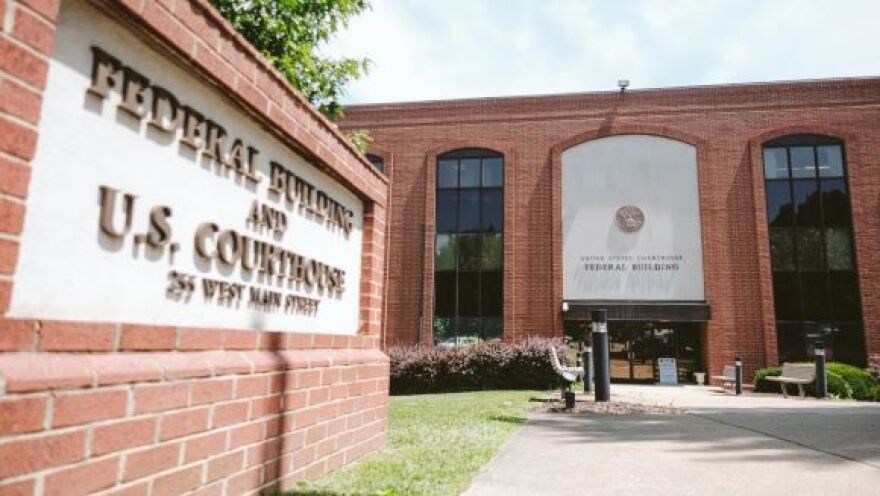A federal judge in Charlottesville heard arguments Thursday from attorneys representing abortion providers in three states asking the court to shield them from further restrictions on the abortion drug mifepristone.
The plaintiffs — which include Whole Woman’s Health Alliance in Charlottesville and Whole Woman’s Health in Alexandria, as well as providers from Montana and Kansas — sued the U.S. Food and Drug Administration in May to ease existing restrictions on the drug.
Providers say the FDA’s regulations are unnecessary and have been used by anti-abortion groups to argue the drug is dangerous. The FDA decided in January to maintain most of those restrictions.
Specifically, providers want the FDA and U.S. Department of Health and Human Services to abandon the set of restrictions known as a Risk Evaluation and Mitigation Strategy (“REMS”), which has applied to mifepristone since it was approved 23 years ago. REMS regulates mifepristone in a similar way to chemotherapy drugs, which providers argue is unnecessary and misleading.
Plaintiffs say mifepristone has been used safely and effectively for more than two decades, and more than half of patients choose this method to end a pregnancy.
“[By] making mifepristone seem uniquely dangerous, FDA’s continuing restriction of mifepristone stigmatizes medication abortion and contributes to the chaos anti-abortion activists now sow,” according to the lawsuit. “Plaintiffs are continuously facing the weaponization of the REMS by anti-abortion activists around the country.”
What the providers ultimately want is for the federal government to remove the REMS designation entirely. In the meantime, they’ve asked District Judge Robert S. Ballou for a preliminary injunction to prevent further restrictions and maintain the status quo.
That’s the same protection a federal judge in Washington state granted to 17 states and the District of Columbia, whose attorneys general signed on to an abortion case there.
Amy Hagstrom Miller, president and CEO of Whole Woman’s Health Alliance and Whole Woman’s Health says that ruling has created chaos and uncertainty for clinics in Virginia.
“We have clinics in some states that are covered by the Washington brief,” Miller said, “and then we have Whole Woman’s Health in Alexandria and Whole Woman’s Health in Charlottesville that are not.”
Commonwealth providers are also waiting for a federal appeals court to weigh a Texas judge’s ruling that would roll back the FDA’s authority to approve mifepristone at all.
A decision in that case could come at any time, but it is expected to be appealed to the U.S. Supreme Court.
Because many patients live in rural areas or are otherwise unable to access a medical abortion, providers said they rely on the ability to prescribe medication abortion. They also noted it is less expensive and requires fewer resources than procedural abortion.
Virginia Del. Sally Hudson (D–Charlottesville) said in an interview following Thursday’s hearing that Virginia had an opportunity to join the Washington brief — but chose not to.
“It’s because Jason Miyares is our attorney general and did not join the fight to protect states across the country with Democratic colleagues that we're in this position at all," Hudson said. "That we’ve got our own health care providers fighting to protect their patients in the court.”
Noah Katzen, an attorney for the FDA, told Ballou on Thursday that it opposed the relief granted in the Washington case and opposes the relief plaintiffs are asking for now. He said providers haven’t proven they’ve been harmed by the FDA’s regulations.
“All they point to is harm from another court order,” he said. “That harm isn’t traceable to FDA conduct.”
Ballou indicated he likely won’t rule on the provider’s motion for a preliminary injunction until at least next month. He’s also considering the federal government’s request to pause proceedings until the Texas case is resolved.

